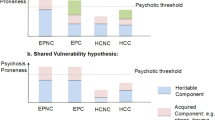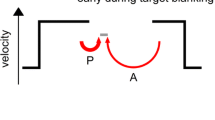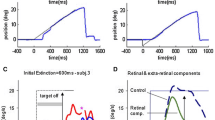Abstract
Rationale: Smooth pursuit abnormalities have been observed in antipsychotic naive first-episode patients, suggesting that they are intrinsic to the illness. However, it is not clear whether these abnormalities are as severe as those observed in more chronic patients. In addition, although research suggests that there are no short-term effects of conventional antipsychotic medication, the effects of long-term antipsychotic medication on smooth pursuit eye movements are relatively unknown. Objectives: To determine the short and long term effects of antipsychotic medication on the smooth pursuit performance of first-episode and chronic patients with schizophrenia. Methods: We compared the smooth pursuit performance of antipsychotic-treated and untreated first-episode and chronic schizophrenic patients with healthy controls using a comprehensive range of performance measures. This included velocity gain, the number, type and size of intrusive and corrective saccades, and the average time between the change in direction of the target and the change in direction of the eye movement, a measure of subjects' ability to predict target movement. Results: Chronic schizophrenic patients had significantly reduced velocity gain, took longer to respond to the change in target direction and made more catch-up saccades than both first-episode schizophrenic patients and controls. First-episode patients were impaired relative to controls only on the measure of velocity gain. There were no differences between antipsychotic-naive and treated first-episode patients. Antipsychotic-free chronic patients were significantly less impaired on velocity gain than matched continuously treated chronic patients. These results were not influenced by group differences in age and symptom severity. Conclusions: These results show that: 1) the main index of smooth pursuit, velocity gain, is impaired early in the course of schizophrenia; 2) whereas velocity gain is unaffected by short-term (weeks) medication, it is worsened by chronic (years) treatment; 3) other indices of smooth pursuit, catch-up saccades and ability to predict target movement, are adversely influenced by illness chronicity rather than medication.
Similar content being viewed by others
Author information
Authors and Affiliations
Additional information
Electronic Publication
Rights and permissions
About this article
Cite this article
Hutton, S., Crawford, T., Gibbins, H. et al. Short and long term effects of antipsychotic medication on smooth pursuit eye tracking in schizophrenia. Psychopharmacology 157, 284–291 (2001). https://doi.org/10.1007/s002130100803
Received:
Accepted:
Published:
Issue Date:
DOI: https://doi.org/10.1007/s002130100803




